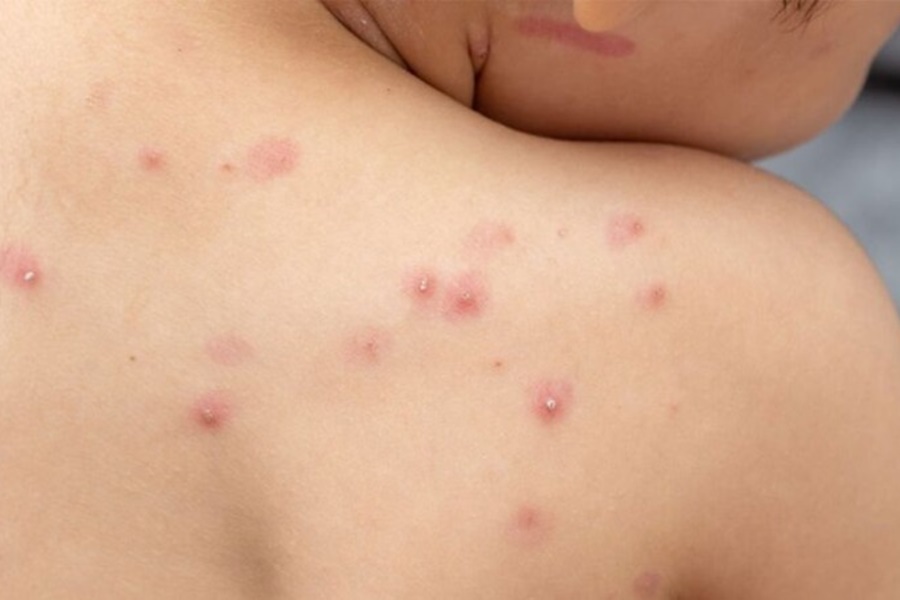By Brazil Agency
The monkeypox diagnostic test by the National Supplementary Health Agency (ANS) is included in the list of procedures that must be covered by private health plans. The procedure appears in a new Standard Resolution approved yesterday (19).
Monkeypox is universally known as monkeypox, and it is endemic to areas of Africa and has become a health concern due to its spread in many countries since May. In Brazil, there are already 7,019 cases and two deaths, according to data released this morning (20) by the Ministry of Health.
According to the standard decision, plans must cover examinations of beneficiaries who provide a medical indication. The examination is performed from fluid samples collected directly from lesions that appear on the skin using a swab [cotonete estéril] dry. The analyzes make it possible to detect the presence of the virus that causes the disease.
According to a note from the ANS, the integration of the test is part of the dynamic process of revising the list, which has already been revised 12 times in 2022, ensuring mandatory coverage of 11 procedures and 20 drugs. Last year, changes were approved in the upgrade process. Until then, the list has been renewed every two years. With the change, proposals began to be analyzed on an ongoing basis by the technical area of the ANS, which evaluates criteria as diverse as proven clinical benefits, alignment with national health policies and the relationship between cost and effectiveness.
“Supplementary testing was included in the list of mandatory coverage in an unusual way, given the disease scenario that currently places Brazil among the six countries with the highest number of confirmed cases worldwide,” records the memo from. and ANS.
flow
There are two known strains of monkeypox. One of them, considered more dangerous due to a mortality rate of up to 10%, is endemic to the Congo Basin region. The other, which has a case fatality rate of 1% to 3%, is endemic to West Africa and is what was detected in other countries in this current outbreak. It usually results in mild clinical cases and is caused by the smallpox virus of a subgroup of orthopoxvirus, as with other diseases such as cowpox and smallpox, it was eradicated in Brazil in 1980 after extensive vaccination campaigns.
Monkeypox was first described in humans in 1958. At that time, monkeys were also affected, and they died. Hence the name of the disease. However, in the transition cycle, they are victims like humans. In nature, perhaps wild rodents represent the animal reservoir for the virus.
Transmission between people occurs through direct contact, such as kissing or hugs, or through infectious wounds, crusts, or body fluids, as well as respiratory secretions. The incubation period for the virus ranges from 5 to 21 days.
symptoms
After contamination, the first symptoms appear between 6 and 16 days. The lesions progress to the crust stage, dry and fall off after a period of two to four weeks. The greatest risk of exacerbation includes immunosuppressed people with HIV/AIDS, transplant recipients, people with autoimmune diseases, pregnant and lactating women, children under 8 years of age, patients with leukemia, lymphoma or metastasis .
The first international outbreaks began in May in Europe and the United States. According to the latest bulletin from the World Health Organization (WHO), issued on September 7, 52,996 have already been reported in 102 countries. 18 deaths have been reported. In July, the World Health Organization declared monkeypox a public health emergency of international concern.
There is no specific treatment for this disease. As a precaution, the infected person should be isolated until all wounds have healed. It is also recommended to avoid contact with any substance that the victim has used. Another measure indicated by health authorities is hand hygiene and washing with soap and water or the use of alcohol gel.
Although smallpox vaccines are effective in controlling outbreaks of smallpox in monkeys, there are, at present, no expectations for a mass vaccination campaign, given the need to produce doses on a global scale. As recommended by the World Health Organization, priority should be given to health professionals and laboratory researchers. In August, the National Health Surveillance Agency (Anvisa) gave the green light to Brazil to import the immunizing agent.

“Wannabe internet buff. Future teen idol. Hardcore zombie guru. Gamer. Avid creator. Entrepreneur. Bacon ninja.”

